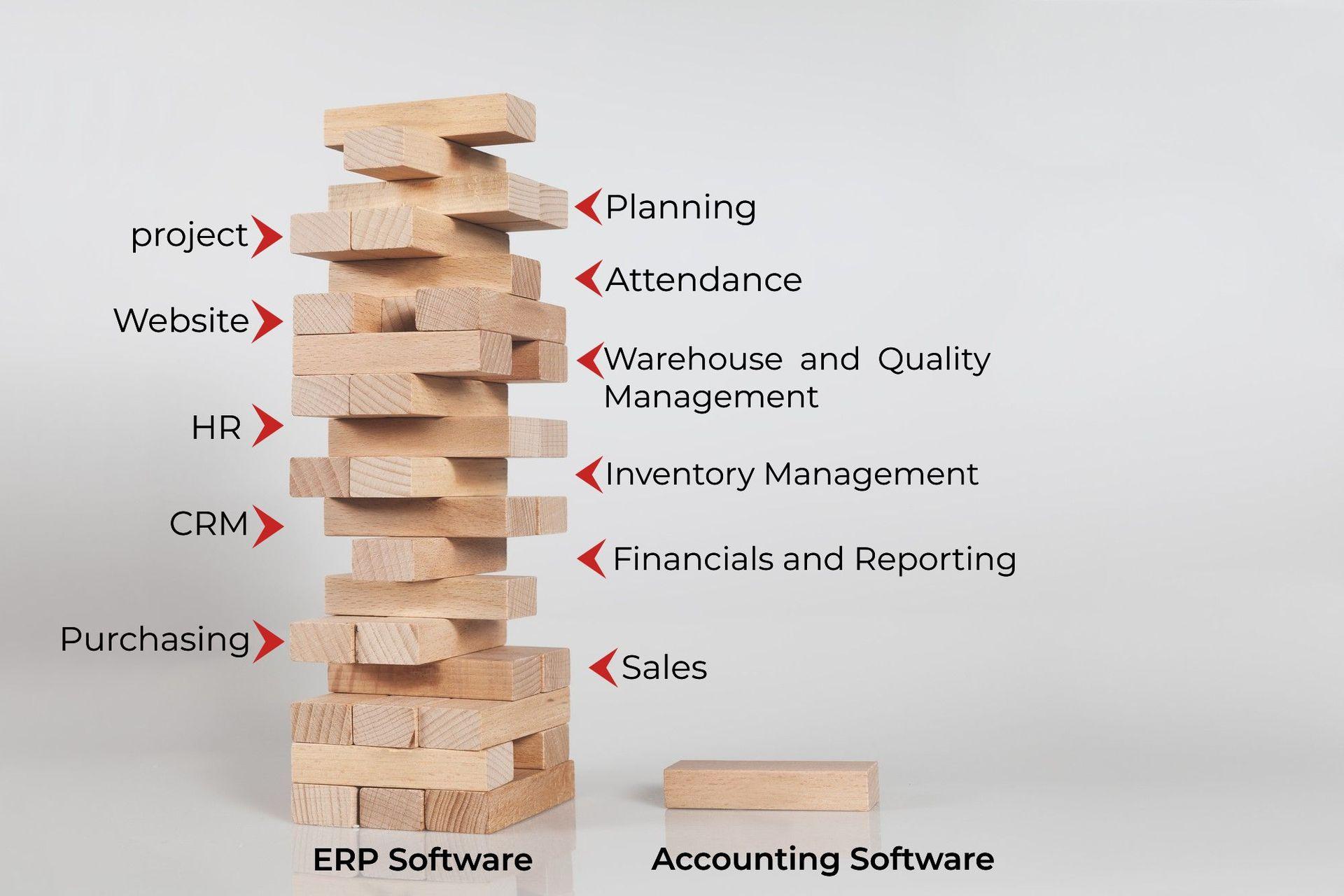Almost every business uses accounting and financial management software. But ERP offers more functionalities when compared with stand-alone accounting software.
Stand-alone accounting software can take care of the standard accounting functions, banking, and limited reporting. However, the standard accounting packages that small and midsize businesses have used for years, cannot forecast what’s in store for tomorrow as businesses faced stronger competition and their customers expected faster turn times and more customization, the need for ERP software became apparent. .
The accounting and financial management features and capabilities that are inherent in ERP solutions deliver a single source of real-time and fully integrated information across different departments for better decision-making. Real-time visibility across the enterprise provides insight into purchasing, production, inventory movement and warehouse management.
Some of the accounting software that is available in the market, cannot scale with your company’s growth because it operates on a proprietary database. Such stand-alone solutions weren’t built to connect company-wide processes and deliver real-time visibility into the status of those processes. As a result, you end up with silos of information that cannot provide a transparent and complete picture of your business operations.

An ERP solution is similar to a collection of Jenga
ERP software goes far beyond what accounting software can offer. The accounting and financial management capabilities within an ERP system deliver a 360-degree enterprise-wide view, including features such as Financial Management and Reporting, Sales, Purchasing and Inventory Management, Warehouse and Quality Management, CRM, HR and more.
Stand-alone Accounting Software is not built for industry-specific needs
Stand-alone accounting software has a limited capability to track inventory for manufacturing and distribution businesses, relying on unwieldy third-party add-ons. While an ERP solution delivers genuine, feature-rich inventory management tools for manufacturers and distributors. With manufacturing ERP, you can proactively manage inventory to reduce stock carrying costs, make faster and more accurate decisions, and lower labor costs. Even better, ERP solutions seamlessly manage the entire shop floor execution system. An ERP solution also lets you manage BOMs, production planning, supply chain management, production resources, supply shipments, and much more. Whereas, accounting software doesn’t provide manufacturing management capabilities.
Accounting Software and ERP solutions are not always GAAP compliant
Many stand-alone accounting and ERP solutions, including some of the popular ones, are not GAAP compliant or make it difficult to comply with GAAP standards – a software flaw that many growing small and midsized companies can’t afford. A company should always ask the vendor how their software can help the comply with GAAP standards, tax laws, and financial regulations.
Accounting Software does not include sales or customer relationship management
An ERP solution provides sales management and order processing. ERP solutions often have a seamless CRM module that lets you access updated contact information and see the history of previous communications. Whereas, stand-alone accounting software does not have these capabilities.
Accounting Software is limited in providing real-time data and mobility
ERP integrates all financial information in a single database. By providing an integrated solution for a wide range of business processes, ERP systems eliminate the need for different tools to manage the requirements of different departments. Furthermore, company-wide data is available in the cloud for anywhere, anytime access to real-time information using a mobile device. ERP systems connect every part of the business so that every decision is based on real-time intelligence.